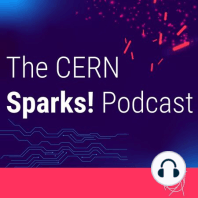2 min listen

S1 Ep3: S1 #3 Creative AI — with Anima Anandkumar and John Ellis
S1 Ep3: S1 #3 Creative AI — with Anima Anandkumar and John Ellis
ratings:
Length:
32 minutes
Released:
Jul 9, 2021
Format:
Podcast episode
Description
We can dream, we can hallucinate, we can create — so how do we build those capabilities into AI? Deep-learning expert Anima Anandkumar and distinguished theoretical physicist John Ellis discuss the potential for artificial intelligence to one day collaborate with us in attacking the biggest unanswered questions in physics — questions which have outwitted humans for years. In a conversation ranging from the quantum nature of subatomic reality to the distributed intelligence of the octopus, our guests explore how AI might one day tackle questions which are conceptually boundless and infinite. “This would be truly stealing the theoretical physicists’ lunch,” says Ellis.
To find out more, join hosts Mark Rayner and Abha Eli Phoboo as they speak with Anima and John on the subject of Creative AI.
Anima Anandkumar is a leading machine-learning researcher whose career spans academia and industry. John Ellis is one of the world’s most respected theoretical physicists.
To find out more, join hosts Mark Rayner and Abha Eli Phoboo as they speak with Anima and John on the subject of Creative AI.
Anima Anandkumar is a leading machine-learning researcher whose career spans academia and industry. John Ellis is one of the world’s most respected theoretical physicists.
Released:
Jul 9, 2021
Format:
Podcast episode
Titles in the series (14)
Trailer - The CERN Spark's Podcast - Future Intelligence by The CERN Sparks! Podcast